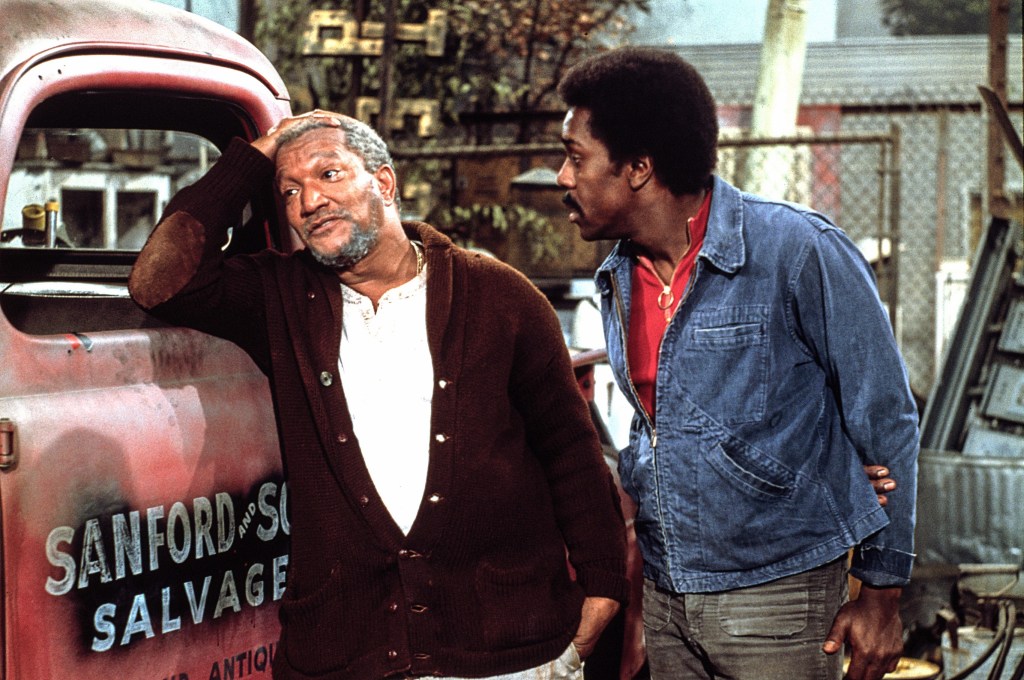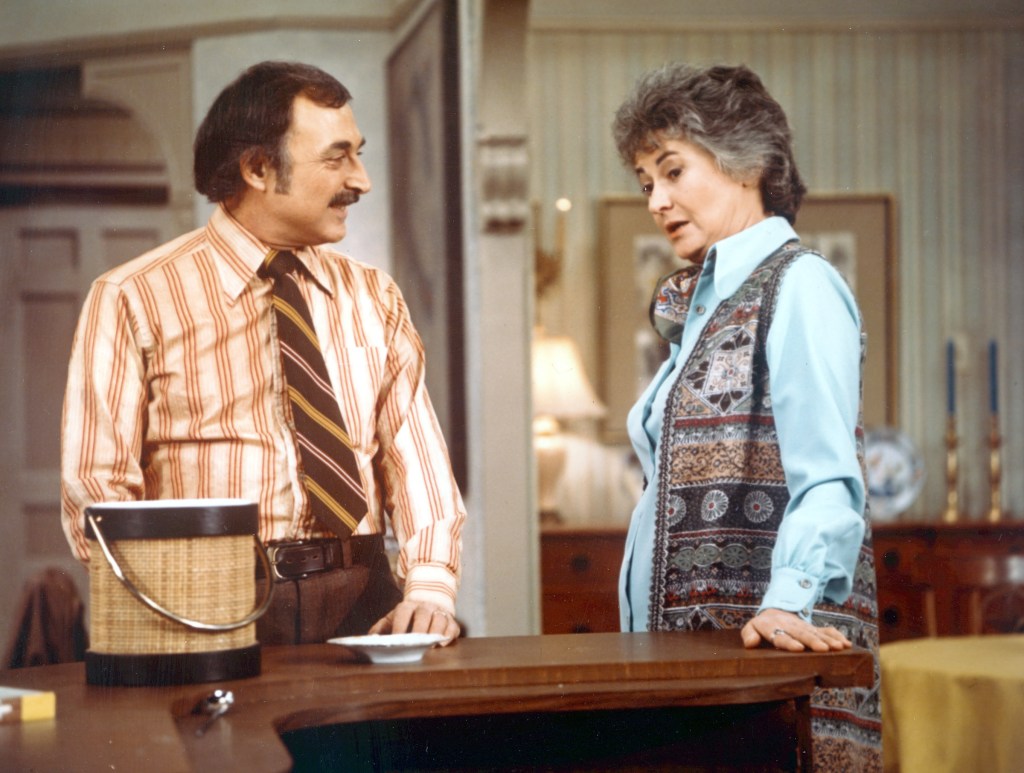Celebrating Norman Lear’s Midas touch: his immeasurable impact on pop culture
I always felt that Norman Lear was too busy to die — even at the age of 101.
So when my friend Julie Farin texted me early Wednesday morning, “Norman Lear! 101!” — I figured he’d just announced another show or signed another deal, since she and I often talk about TV legends and how Lear, the Energizer Bunny, never seemed to slow down.
Sadly, that wasn’t the case — Lear died Tuesday at home, surrounded by his family. But this much is clear: He worked right up to the very end, even though he burnished his legend as the personification of classic TV comedy over 50 years ago, with shows he either created or produced: “All in the Family,” “Sanford and Son,” “Maude,” “Good Times,” “The Jeffersons,” “One Day at a Time.”
And that was only the tip of his creative iceberg.
Lear seemed to accelerate his television output even with advancing age (or maybe in spite of it), including the Netflix reboot of “One Day at a Time,” an upcoming re-imagining of “Mary Hartman, Mary Hartman” — his satirical late-night soap — and live stagings of his classic sitcoms via ABC, in which he proudly showcased those works with all-star casts alongside host Jimmy Kimmel.
Heck, he inked a new deal to create more TV shows … when he turned 96. How cool is that for a man whose résumé dated back to writing scripts for Jerry Lewis and Dean Martin on “The Colgate Comedy Hour” when television was in its infancy? Along the way, Lear also wrote for Danny Thomas and “The Martha Raye Show” and wrote or co-wrote several movies, including “Divorce American Style,” “The Night They Raided Minsky’s” and “Cold Turkey” (starring Dick Van Dyke and Bob Newhart, both still with us).
I was lucky enough to interview Lear (for me, it was always “Mr. Lear,” never “Norman” — he was too iconic for first-name familiarity), both for my 2011 biography of Redd Foxx and several times for The Post, including for the 50th anniversary of “All in the Family” and for a state-of-the-state discussion when he was 97. He was always, as hoped, witty and urbane (he told me Foxx “could tell you that your mother died and still make you laugh”). His only nod to his age in later years was a hearing aid and sometimes having Brent Miller, the president of Lear’s Act III Productions, tag along for interviews.
Lear’s impact on pop culture is immutable and immeasurable. I can’t imagine anyone else but him transforming Carroll O’Connor’s Queens bigot Archie Bunker into a nuanced national treasure — and, maybe for the only time, spurring people to use the words “bigot” and “lovable” in the same sentence. Far from turning viewers off, Lear’s protagonists were embraced by most of the country (even the thorny Maude Findlay), perhaps because the storylines and the themes they embraced — sex, bigotry, racism, financial worries, fidelity, a changing sociopolitical scene — hit so close to home during a decade in which our cultural meter took such a thunderous turn toward the Me generation.
B.L. — Before Lear — television sitcoms were generally safe havens for all-American blandness: “Leave It to Beaver,” “The Adventures of Ozzie and Harriet,” “Green Acres,” “Family Affair,” “Here’s Lucy” … the list is endless. Sure, there were the occasional exceptions to the rule — “The Dick Van Dyke Show,” “Get Smart,” “The Twilight Zone,” “The Mod Squad.” But Lear singlehandedly threw a grenade into the prime time landscape in 1971, blowing its mores to smithereens: Edith Bunker’s attempted rape on “All in the Family” and Archie’s weekly un-PC ruminations (“England is a fag country,” he once said); Maude (Bea Arthur) having an abortion; the “Good Times” family dealing with the death of patriarch James Evans Sr. (John Amos). That his shows managed to balance these raw moments with humor remain one of the touchstones of his memory.
That was part of Lear’s Midas touch, and he spun his TV gold into his reputation as, well, the King of the Spinoffs. He was a trailblazer there: “All in the Family” begat “The Jeffersons” and “Maude” — which in turn spawned “Good Times.” Plus, he adapted “All in the Family” from the hit British series “Till Death Us Do Part” and “Sanford and Son” from the same geographical source, mining the BBC’s “Steptoe and Son” — about the “rag and bone trade” (in British parlance) for the classic NBC sitcom starring Foxx as a widowed junk dealer in Watts, California, who can’t, or won’t, let his grown son (played Demond Wilson) leave home and sever their bond (threatening him with his frequent chest-clutching act, feigning heart attacks).
And who else but Norman Lear would have the audacity to create both a syndicated, cutting-edge late-night soap opera (“Mary Hartman, Mary Hartman”) and a weird talk-show parody (“Fernwood 2 Night,” which morphed into “America 2-Tonight” with stars Martin Mull and Fred Willard). Both touched on life’s absurdities in a slightly off-kilter middle-America milieu: satirical sandwiches on wry with a touch of salt and vinegar.
Norman Lear’s impact on television cannot be overestimated. How poetic, then, that he lived to 101 — long enough to look back on both the 20th and 21st centuries and celebrate what he created before he left us.










